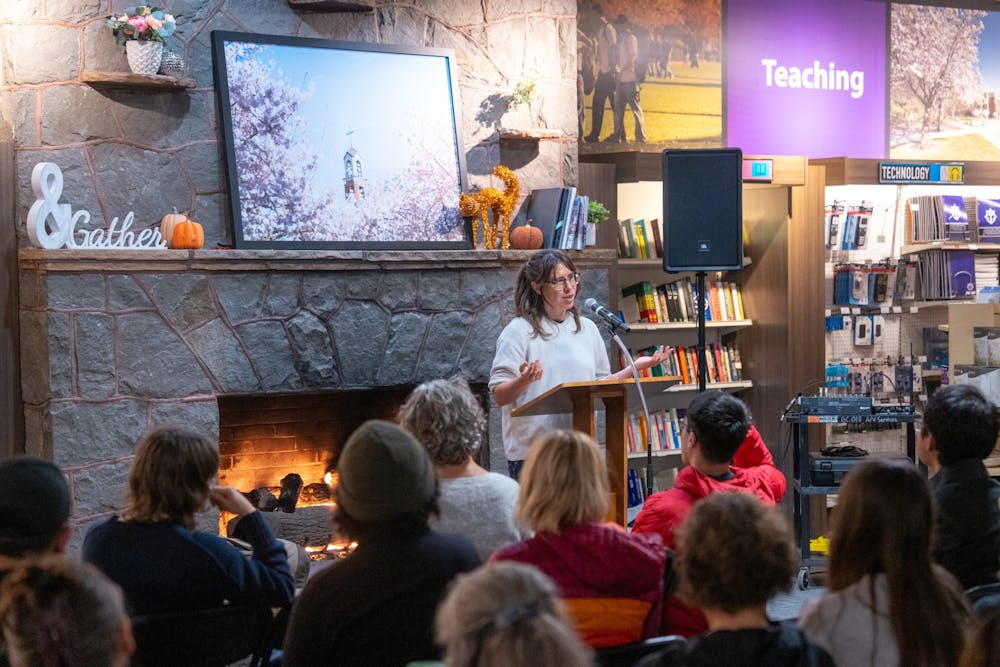November 25, 2025

Have you ever wondered how you can be more generous without spending a ton of money? Or maybe you’re trying to navigate how you can give more to your community without feeling depleted? In her book Group Living and Other Recipes, author Lola Milholland shares her lessons in creating sustainable relationships, and she brought those lessons to the University of Portland campus on November 4th.
Professors Molly Hiro and Jen McDaneld invited Milholland to talk to the UP community through their Public Research Fellows program, which is funded by a grant from the Mellon Foundation. Her presentation explored the benefits of group living, encouraged interpersonal generosity, and offered deep insight into the connections that shape vibrant communities.
As the founder of Umi Organic, a beloved Portland noodle company, Milholland is known for her passion for food justice, sustainable food systems, and expanding access to nutritious meals. This passion intertwines with her belief in the power of community. “When we cook for each other, we’re telling layered stories about our identities,” she says. “And when we eat what someone else has cooked—or cook at their side—our lives become entangled.”
Three Ways to Be More Generous and Create a Positive Community Culture
For many students at the University of Portland, shared meals and close quarters are foundational parts of college life. But community living—whether in a residence hall, campus apartment, or off-campus house—comes with its own challenges.
Milholland, who has lived in community since her college years, has developed practical insights that have shaped her approach to meaningful shared living. As we enter the season of giving and gratitude, she offers encouragement and strategies for cultivating generosity in everyday life, especially within shared households:
University of Portland
5000 N. Willamette Blvd.,
Portland, Oregon 97203-5798
503.943.8000
This website uses cookies to track information for analytics purposes. You can view the full University of Portland privacy policy for more information.
